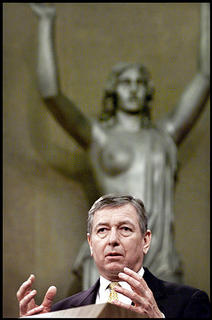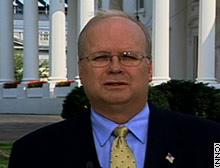 June 17, 2005:
June 17, 2005:Alberta Agriculture Minister Doug Horner says U.S. Vice President Dick Cheney is still solidly behind resuming the cattle trade with Canada. Cheney was up to speed on the topic when the two met Thursday, said Horner, and he "reiterated the U.S. desire for a positive outcome."
"We're going to continue to work together to resolve the situation," said the minister, who is meeting Friday with U.S. Agriculture Secretary Mike Johanns.
American officials, who announced a second possible mad cow case last week, were set to drop the cattle ban in March but a Montana judge sided with a protectionist U.S. ranchers' group and temporarily extended it.
The government's appeal of that ruling will be heard in Seattle in the U.S. Court of Appeals July 13. Legal arguments on the long-term fate of the border are slated for July 27 in Billings, Montana.
U.S. officials won't confirm whether or not they have a second mad cow until brain tissue samples are examined at a international lab in Weybridge, England.
June 21, 2005:The U.S. Agriculture Department is appealing a March ruling by a federal court in Montana that halted, at the request of U.S. ranchers group R-CALF USA, a government plan to allow imports of Canadian cattle under 30 months of age.
The ranchers blame Canada for introducing mad cow to the United States and want to keep the border closed. So far the only U.S. confirmed case of mad cow disease, or bovine spongiform encephalopathy (BSE), was found in December 2003 in a Washington state dairy cow raised in Canada.
June 24, 2005:Tests have confirmed mad cow disease in a U.S. cow previously cleared of having the brain wasting illness, the Agriculture Department said Friday. It is the second case of mad cow disease in the United States.
An internationally recognized laboratory in Weybridge, England, confirmed the case of mad cow disease after U.S. tests produced conflicting results, Agriculture Secretary Mike Johanns said.







